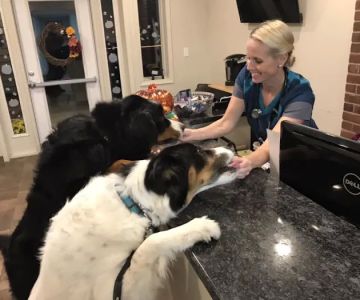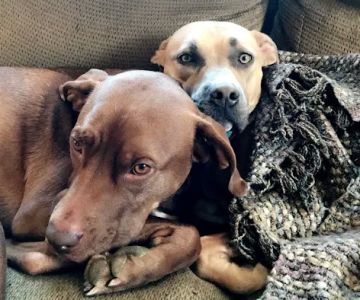Understanding Veterinary Diets: What You Need to Know
- What Are Veterinary Diets?
- The Benefits of Veterinary Diets
- Types of Veterinary Diets
- How to Choose the Right Veterinary Diet
- When to Consider Veterinary Diets for Your Pet
What Are Veterinary Diets?
Veterinary diets are specially formulated pet foods designed to address specific health issues. Unlike standard pet foods, these diets are created under the supervision of veterinarians to provide nutritional support tailored to your pet's individual medical needs. From managing weight to supporting kidney health, veterinary diets are often a crucial part of your pet’s wellness plan. Many of these diets are available by prescription, ensuring your pet receives the exact nutrients required for their condition.
The Benefits of Veterinary Diets
Using veterinary diets can significantly improve your pet’s quality of life. Whether your pet is dealing with digestive issues, allergies, or arthritis, these specialized foods provide targeted nutrients to help manage and alleviate symptoms. Here are some key benefits of veterinary diets:
- Improved health: Veterinary diets can manage specific health conditions like diabetes, kidney disease, or obesity.
- Better digestion: Formulated with easy-to-digest ingredients, veterinary diets support a healthy digestive system.
- Weight management: For pets struggling with obesity or underweight, these diets help maintain healthy body weight.
- Allergy control: Many veterinary diets are hypoallergenic and can reduce the occurrence of allergies in pets.
Types of Veterinary Diets
There are several types of veterinary diets, each designed to address different health concerns. Some of the most common types include:

701 N Pennsylvania Ave, Morrisville, PA 19067, USA
See Details1. Weight Management Diets
For pets that need to lose weight or maintain a healthy weight, weight management diets are essential. These diets are lower in calories and fat but rich in fiber to help your pet feel fuller for longer.
2. Kidney Support Diets
Pets with kidney disease often require a special diet to reduce the workload on their kidneys. These diets are lower in protein and phosphorus, providing vital support for kidney function.
3. Gastrointestinal Diets
Gastrointestinal issues are common in pets. Specialized gastrointestinal diets help promote healing in the digestive system, easing symptoms such as vomiting, diarrhea, and constipation.
4. Allergy-Friendly Diets
Pets with food allergies or sensitivities benefit from hypoallergenic diets, which eliminate common allergens and provide a well-balanced, easily digestible formula.
How to Choose the Right Veterinary Diet
Choosing the right veterinary diet for your pet involves working closely with your veterinarian. Your vet will assess your pet’s health condition and recommend a diet that best supports their medical needs. Here's what you should consider:
- Consult your vet: Always consult your vet before making any dietary changes to ensure the diet is suitable for your pet’s health needs.
- Understand the ingredients: Look for diets that use high-quality, easily digestible ingredients tailored to your pet’s health issues.
- Monitor your pet’s progress: After starting a veterinary diet, track your pet’s health and discuss any changes with your vet.
When to Consider Veterinary Diets for Your Pet
There are several situations in which a veterinary diet might be necessary. Here are some common scenarios:
- Chronic health issues: Pets with long-term conditions like diabetes, heart disease, or kidney disease benefit from specialized diets.
- Weight management: If your pet is overweight or obese, a veterinary diet can help with weight loss and maintenance.
- Digestive disorders: Pets experiencing vomiting, diarrhea, or other digestive issues may need a specialized diet to support gastrointestinal health.
By understanding the importance of veterinary diets, you can better manage your pet’s health and ensure they are getting the best nutrition. If your pet has specific dietary needs, we recommend exploring veterinary diets available through your veterinarian or online. Visit Scent Snob for more information on products and services tailored to your pet's health needs.










